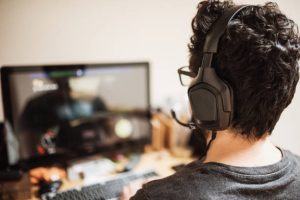In recent years, artificial intelligence has made significant strides in various fields, and literature is no exception. The emergence of AI as a tool for writing has ushered in a new era where machines are not just aiding human creativity but are also becoming authors in their own right. This development raises intriguing questions about the nature of creativity, authorship, and the future of literature.
AI’s involvement in writing began with simple tasks such as grammar checking and plagiarism detection. However, advancements in machine learning have enabled AI to perform more complex functions like generating coherent text based on prompts or even creating entire narratives. One notable example is OpenAI’s GPT-3, a language model capable of producing human-like Text generation AI that can mimic different writing styles and genres.
The potential benefits of AI-generated literature are vast. For one, it can democratize the process of writing by making it accessible to those who may lack traditional skills or resources. Aspiring writers can use AI tools to overcome writer’s block or generate ideas they might not have considered otherwise. Additionally, publishers can leverage AI to quickly produce content tailored to specific audiences or trends.
Moreover, AI-driven storytelling offers opportunities for experimentation that were previously unimaginable. Writers can collaborate with machines to explore unconventional narrative structures or develop interactive stories that respond dynamically to reader input. This fusion of technology and creativity could lead to entirely new genres and forms of expression.
However, the rise of machine-authored literature also presents challenges and ethical dilemmas. There is an ongoing debate about whether works produced by AI should be considered art or mere imitations lacking true creative intent. Furthermore, issues surrounding copyright ownership arise when determining who holds rights over a piece written by an algorithm—its developer or user?
Another concern lies in ensuring diversity within machine-generated texts since algorithms often rely on existing datasets which may contain biases reflecting societal inequalities present within them; thus perpetuating stereotypes rather than challenging them through innovative storytelling approaches offered via human perspectives alone without technological intervention involved at any stage during creation processes involved therein whatsoever!
Despite these concerns though overall impact remains positive given how much potential exists here: imagine being able read novels created collaboratively between humans/machines alike offering fresh insights into world around us while simultaneously pushing boundaries what constitutes “literature” itself beyond traditional definitions long held dear until now thanks largely due advances made possible only recently via cutting-edge technologies available today unlike ever before seen throughout history past centuries gone forevermore never returning again anew once more thereafter onward journey continues forward always evolving constantly changing evermore!








